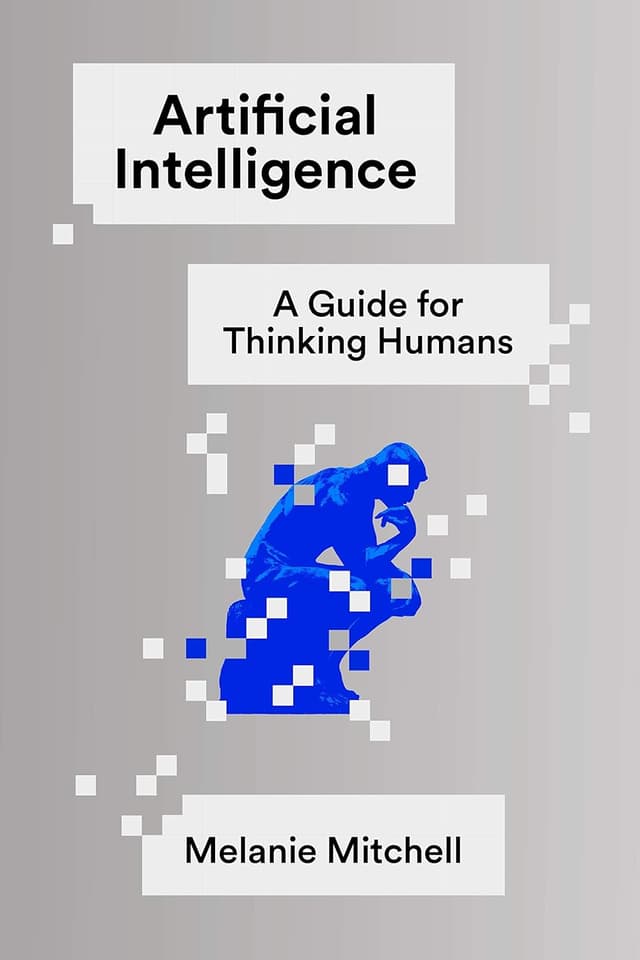Colin Nagy | November 8, 2019
Why is this interesting? - The Meatless Edition
On meat alternatives, flavor, and a return to processed foods
Recommended Products

An all-time favorite book by Melanie Mitchell.

A new book on AI exposing its limits.
Colin here. Those wanting to limit their meat intake can rejoice for choice. There’s been a surge of plant-based foods that are packed with flavor: Impossible Foods has created a burger that has none of the negative associations with the bland and uninspiring veggie burger of old, instead its flavorful, juicy, and grillable like you would a piece of meat. Beyond Meat uses peas, mung beans, fava beans, brown rice, and sunflower, combined with fats they claim, “create juicy plant-based burgers, beef, and sausages that sizzle in the pan or on the grill.” I’ve tried them all, despite being an avowed lover of steak, and most really are quite satisfying.
It has become a trend. The advances in food technology have been spilling into mainstream culture. KFC is doing a collaboration with Beyond Meat in key stores to test consumer demand for meatless chicken. You can get an Impossible Whopper at Burger King. And it’s not just for curated NY or LA diets or for the uber eco-conscious. According to NPR: “Meatless meats are going mainstream. You can find meatless burgers, brats and sausages at fast food restaurants, major league ballparks and soon, even hospital cafeterias.”

Why is this interesting?
Turns out the science and flavor alchemy that goes into making some of this stuff palatable is a lot of work. And the level of processing doesn’t mean these new forms are as healthy as they may seem. According to the Washington Post:
Despite its swift ascent, plant-based meat is the antithesis of recent trends such as local and farm-to-table dining, representing an embrace of highly processed foods made palatable in a laboratory by technicians such as Wright. “These are great proteins from a nutritional perspective, but plant-based presents some challenges with tastes that can be unpleasant,” Wright says. First, there is the masking of the vegetal “green” notes in pea protein and the “beany” notes in soy, often by adding other ingredients and chemicals.“There isn’t one magic bullet, not one molecule or extract. It tends to be common pantry items like salt, spices, molasses, honey,” Wright says. Vanilla extract is often used for masking because it is known for how it binds to a protein, rendering its own distinctive taste undetectable.“It sacrifices itself,” she says. She describes vegetal notes that are more about aromatics. The goal is not to remove these aromas, but to prevent them from being perceived.“
The issue here is some of what goes into this is the opposite of whole foods (the movement, not the store). “It doesn’t resemble the foods from which it came; it has a vast number of ingredients. It fully meets the definition of ultra-processed food,” says Marion Nestle, author and nutrition professor at New York University, about these new plant-based meats. So for all of the advances we have made in nutrition and the importance of eating things you can pronounce, this might represent a regression in disguise. CNET breaks down the ingredients a bit:
For example, the Impossible Burger contains soy protein, a strange ingredient called soy leghemoglobin, sunflower and coconut oils, methylcellulose, yeast extract, cultured dextrose, food starch and more. So if your goal is to eat less processed foods, real beef is the way to go (not including items like hot dogs, which are also very processed). One particular concern about faux beef is the sodium content, as pointed out by Dr. Andrew Weil, an integrative medicine doctor and creator of the praised Anti-Inflammatory Diet. One version of the Impossible Burger -- the Impossible Whopper at Burger King -- contains 1,240 milligrams of sodium
There’s no doubt that moving more people that wouldn’t normally think about going plant-based for some meals is a good thing. There’s a well-documented argument that avoiding meat and dairy products is the single biggest way to reduce your environmental impact on the planet. But in doing so, upping the consumption of hyper-processed foods seems like a significant trade-off that hasn’t been adequately communicated to the public. There’s no doubt the tech and levels of innovation from startups (and flavorists) will continue to evolve, but for now, it seems like a sizable asterisk against the hype of the sector. (CJN)
Chart of the Day:
More 13-16 year-olds now use TikTok than Facebook, the coming-of-age moment for any new social platform. Via Axios Media Trends. (NRB)

Quick Links:
This is what it is like not to own a smartphone (CJN)
Swiss infrastructure that was designed to self-destruct in the event of invasion via BP (CJN)
Melanie Mitchell, whose book Complexity: A Guided Tour is an all-time favorite, has a new book out on AI titled Artificial Intelligence: A Guide for Thinking Humans(NRB)
Thanks for reading,
Noah (NRB) & Colin (CJN)
Why is this interesting? is a daily email from Noah Brier & Colin Nagy (and friends!) about interesting things. If you’ve enjoyed this edition, please consider forwarding it to a friend. If you’re reading it for the first time, consider subscribing (it’s free!).